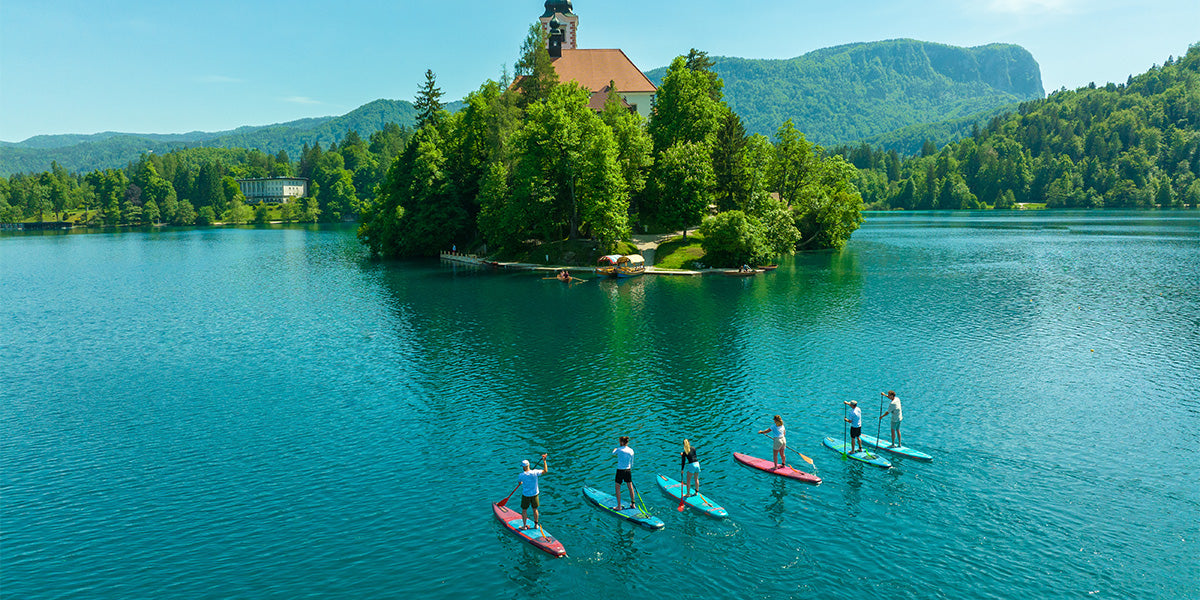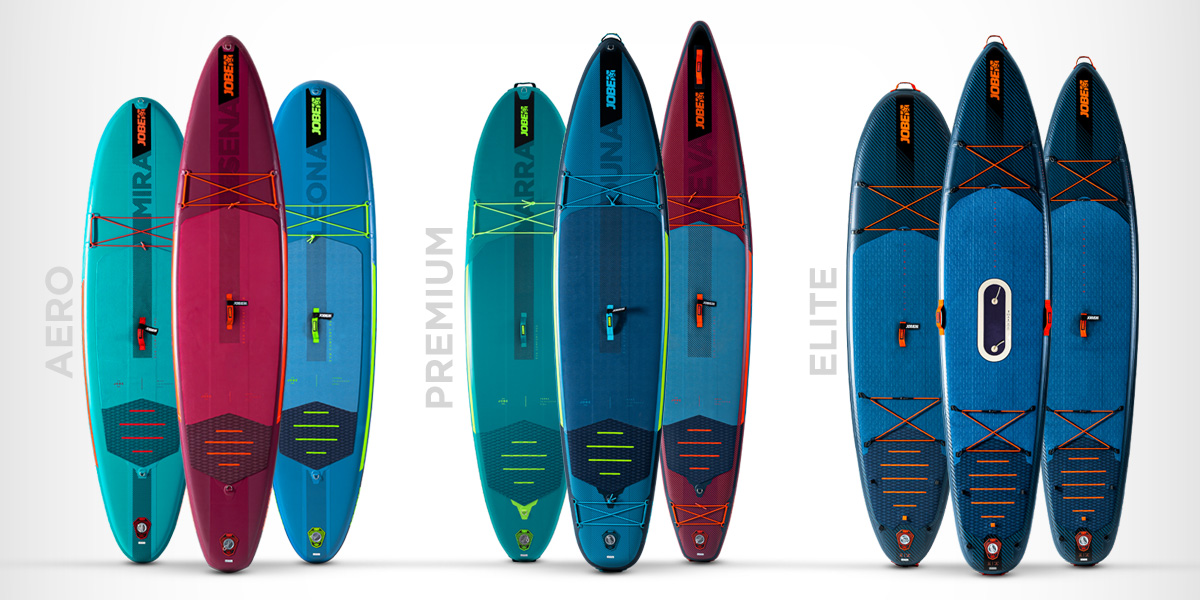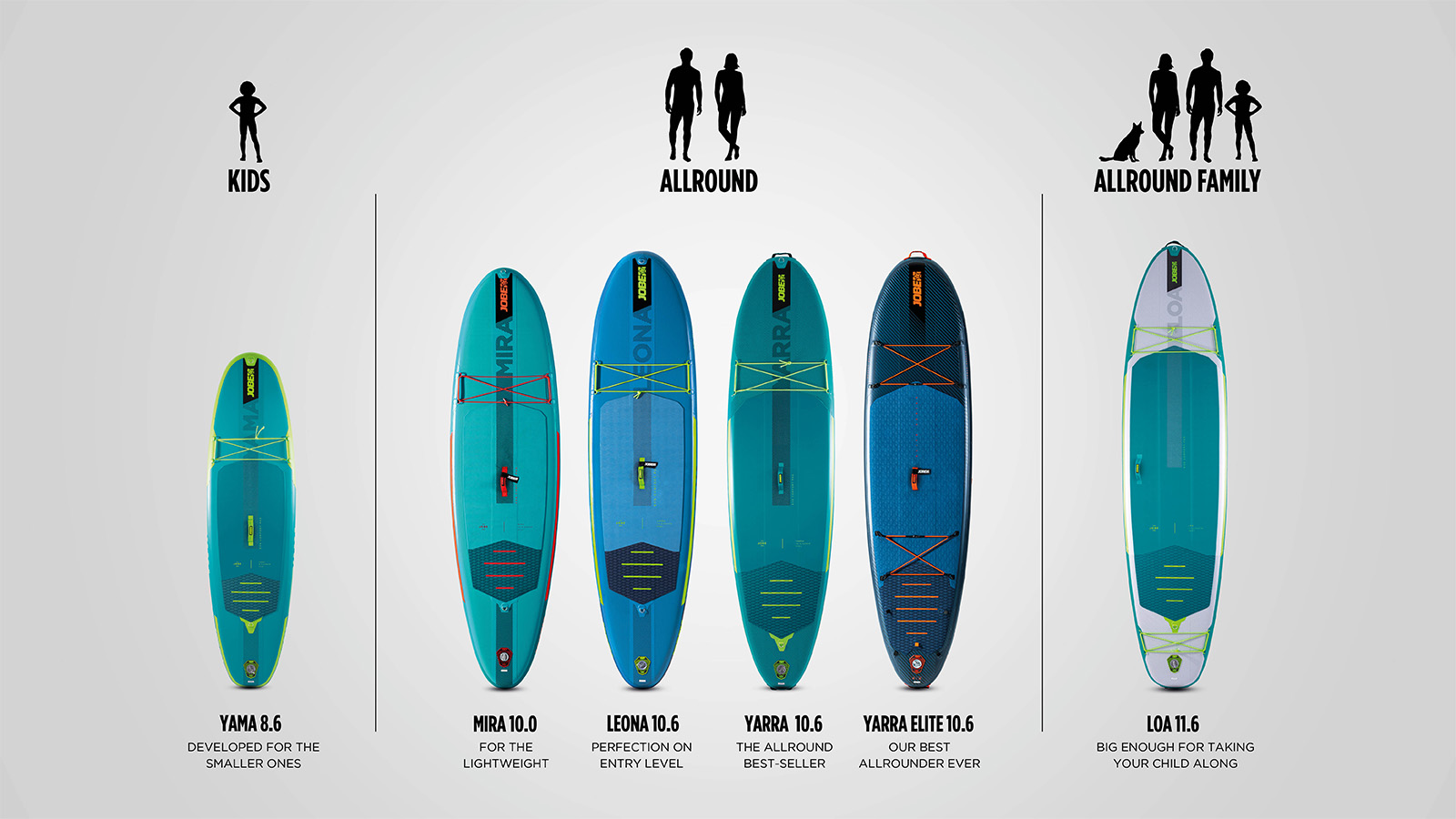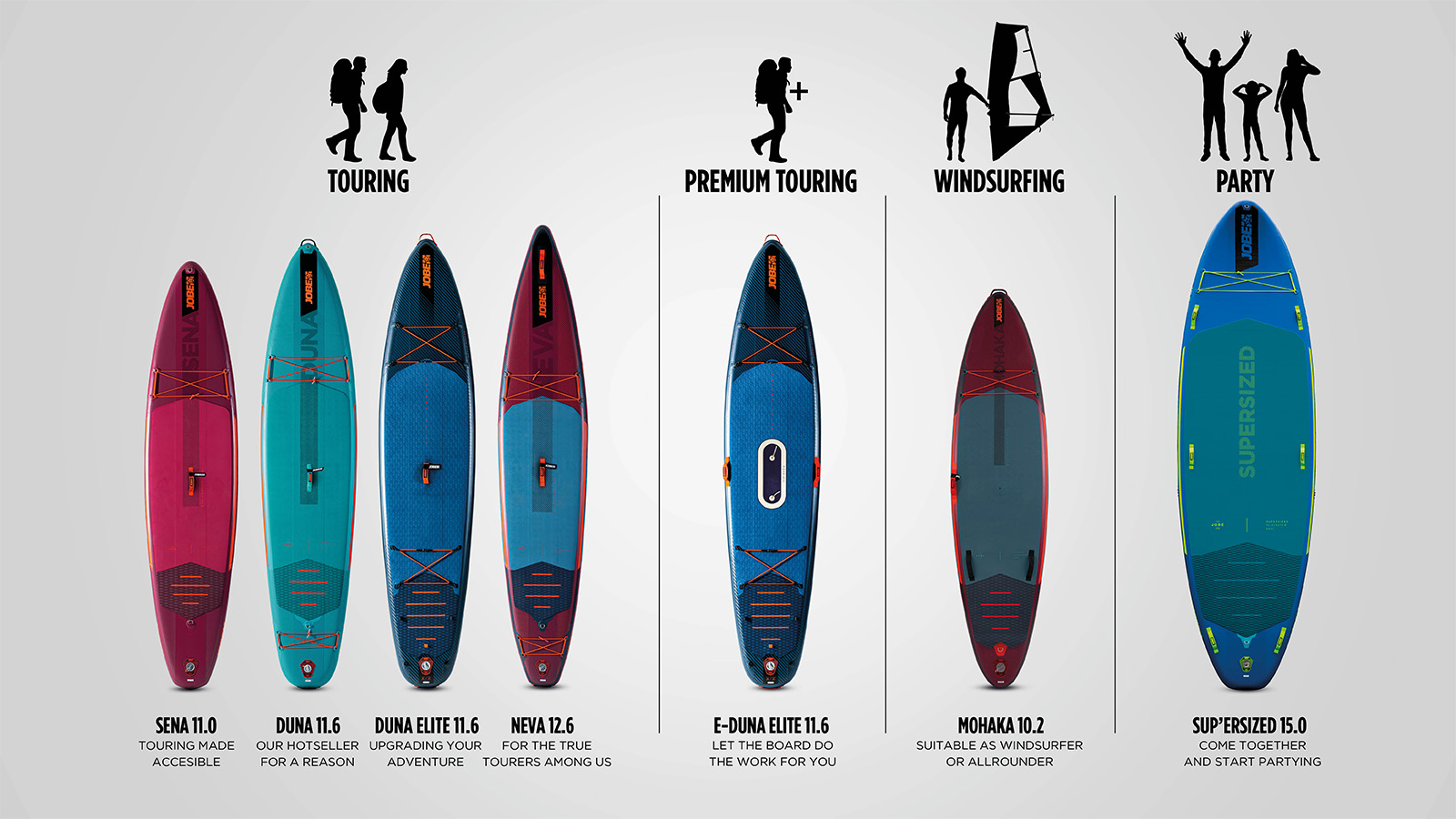
Ultimate Stand Up Paddling (SUP) Guide 2023 - 2024
Stand Up Paddling: The Ultimate Guide to the Sport and its Equipment (2023 - 2024)
Stand up paddling (SUP) is an exciting and fun sport that has captured the hearts of people around the world. In this blog post, we'll dive into the origins of the sport, how to get started, why it's so popular, and the benefits it provides for both your mental and physical health. We'll also explore the equipment that is essential to stand up paddling, such as the different types of boards, their shapes, and the accessories that make the experience more enjoyable.
The sport has its origins in Hawaii, where it was known as "hoe he'e nalu." The practice dates back to the 1940s when surf instructors in Waikiki started using paddles to help them navigate the waves and get a better view of their students. The modern version of stand up paddling started on the North Shore of Oahu in the early 2000s when surfers used it as a way to stay in shape during the off-season.
.jpg)
How to Stand Up Paddle Board
Stand up paddleboarding (SUPing) is a fun and easy water activity that can be enjoyed by people of all ages and skill levels. Here are the basic steps to help you get started:1. Choose the right gear: You'll need a paddleboard that is right for your size and skill level, a paddle, and a leash.
2. Find a calm and flat water area: It's best to start in calm water without any strong currents or waves.
3. Start on your knees: Begin by kneeling on the board, holding the paddle in front of you with your hands shoulder-width apart on the paddle.
4. Position yourself on the board: Place your hands on the board and slide your feet underneath you, so you're in a tabletop position. Make sure your feet are hip-width apart and centered on the board.
5. Stand up: Slowly stand up on the board, keeping your knees slightly bent and your core engaged for balance. Keep your feet parallel and shoulder-width apart, and make sure to keep your weight centered over the board's middle.
6. Begin paddling: Hold the paddle with both hands, one hand on the handle and the other on the shaft, and dip the blade into the water. Pull the paddle towards you, and then push it back to propel the board forward. Keep your arms straight, and twist your torso as you paddle to generate more power.
7. Practice, practice, practice: The more you practice, the more comfortable you'll become on the board. Keep practicing your balance and paddling technique, and before long, you'll be a pro!
Remember to always wear a life jacket, stay aware of your surroundings, and have fun!
Different shapes
In the world of stand up paddle boarding there are lots of different shapes which each have their own characteristics. Think of all-round boards, touring boards or surf, yoga or race boards. All-round boards and touring boards are the ones you’ll find the most on the water and these types of boards represent the biggest part of Jobe’s stand up paddle range.All-round boards are versatile and great for beginners. They are wider and have a more rounded shape, which makes them stable and easy to maneuver in a variety of water conditions. All-round boards typically range from 9 (274 cm) to 11 (335 cm) feet in length and are perfect for recreational paddling and exploring calm waterways. You simply can’t go wrong with an all-round board and that is why these boards are also widely represented throughout all our stand up paddle series.

What size Stand Up Paddle Board do I need?
The size of stand up paddleboard (SUP) you need depends on several factors, including your weight, height, skill level, and intended use. Here are some general guidelines to help you choose the right size SUP:1. Weight: The weight of the paddler is a crucial factor in determining the board's size. The more you weigh, the more buoyancy and stability you'll need. As a general rule, for every 11kg of weight, you should add 2.5 cm to the board's width.
2. Height: Your height is also a consideration when selecting a board. Taller people may need longer boards to accommodate their height and provide adequate stability.
3. Skill level: Beginner paddlers may prefer wider and more stable boards, while more experienced paddlers may prefer narrower and more agile boards.
4. Intended use: The type of paddling you plan to do will also impact the board's size. For example, if you plan to paddle in calm water or surf small waves, you may want a shorter board. For longer-distance paddling or touring, a longer board may be more suitable.
As a general guideline, if you are a beginner paddler, you may want to consider a board that is at least 10 feet long (3 meters) and 32 inches (81 cm) wide. If you are an intermediate to advanced paddler, you may want to consider a board that is between 9 (270 cm) and 12 feet (360 cm) long and 28 (71 cm) to 32 (81 cm) inches wide. Ultimately, the best way to determine the right size SUP for you is to try different sizes and styles to see what works best for your body and paddling style.
Why Stand Up Paddling is Good for Your Physical Health
Stand up paddling is a great form of exercise that can provide a full-body workout. It's an effective way to improve your cardiovascular health and can help to build strength and tone your muscles. Additionally, stand up paddling can help to improve your balance and coordination, which can be beneficial for other sports or activities you participate in. Lastly, because it's a low-impact activity, stand up paddling is less likely to cause injury or exacerbate existing joint pain.Why Stand Up Paddling is Good for Your Mental Health
Stand up paddling is not just a great physical workout, but it also has numerous mental health benefits. Being out on the water can be a meditative experience, which can help to reduce stress and anxiety. Additionally, being surrounded by nature and fresh air has been shown to boost mood and improve cognitive function. Lastly, stand up paddling can be a great social activity, allowing you to connect with others and build a sense of community.Stand Up Paddle Boards: Inflatable vs. Rigid Boards
Inflatable stand up paddle boards have gained popularity due to their portability and ease of storage. Inflatable boards are made of durable PVC material and can be inflated to provide a stable platform for paddling. They are generally more affordable than rigid boards. Inflatable boards are also easier to transport, as they can be deflated and rolled up to fit in a backpack or small bag. Inflatable boards are often the preferred choice for beginners or those who have limited storage space for their equipment.On the other hand, rigid stand up paddle boards are made of foam or composite materials and are preferred by more experienced paddlers. Rigid boards are heavier and require more storage space, but they provide a more stable and faster ride. They are designed to handle rougher waters and provide better performance in terms of speed and maneuverability.
Different ranges
There are many different types of stand up paddle boards available on the market, each with its own set of characteristics designed to suit different paddling styles and water conditions. All-round and touring stand up paddle boards are the most common boards you’ll see on the water and these type of boards cover the biggest part of Jobe’s stand up paddle range.
Since 2023, the Jobe stand up paddle range is divided into three different ranges which each have their own unique selling points. It all started with the Premium Aero Series which have grown out to our most popular range. It’s the range which gathered attention all around the world thanks to its excellent stiffness and durability, and this range consists of the most stand up paddle boards.
Next to this series we also have the Aero Series. In this series we have done some minor changes to the board and the accessories of the stand up paddle package, and that gave us the possibility to create a price friendly package while still offering that unmatched Jobe paddling experience.


Allround boards vs Touring boards
Allround stand up paddle boards generally are shorter and wider, offering more stability at the cost of speed. Typically allround boards are perfect for beginners.Aero Series
Mira 10.0 – a super compact and lightweight board which is the perfect entry to the world of stand up paddling for the smaller people among us. Next up this friendly priced.
Leona 10.6 – The Leona has similar characteristics as the Mira but it is 15 centimeters (6 inches) longer which makes it more accessible for bigger people.
Premium Series
Yarra 10.6 – The Yarra is our all-round champion which is loved around the globe. This award winning board has a thick and wide shape and the best technologies to give you an unmatched stand up paddle experience.
Loa 11.6 – The Loa can be considered as the Yarra’s big sister. This board is one feet longer and also seriously wider, making it a super stable board which also easily holds an extra (smaller) person).
Mohaka 10.2 – The Mohaka is a great allrounder which also comes with a windsurf mount, making this board suitable for multiple purposes!
Duna 11.6 – Another big name in our stand up paddle range. The Duna 11.6 is one of our most popular boards thanks to its great touring possibilities. What makes this Duna a great board is its degree of stability while being a touring board. You can’t go wrong with the Duna!
Neva 12.6 – The Neva is the touring champion of our stand up paddle range. With is length of 12.6 feet and its narrow shape, this board slides through the water with ease. If you’re looking for covering serious distances, the Neva is an excellent choice!
Electric SUP
E-Duna 11.6 – The E-Duna Elite is the electric powered version of the regular E-Duna. In this board you will find a jet motor that cruises you forward! The E-Duna is definitely one of the coolest things to happen in stand up paddling!
